What Prevents Action? Ecotrain QOTW Season 8.6 Finale | ¿Qué impide la acción? |[ESP/ENG]
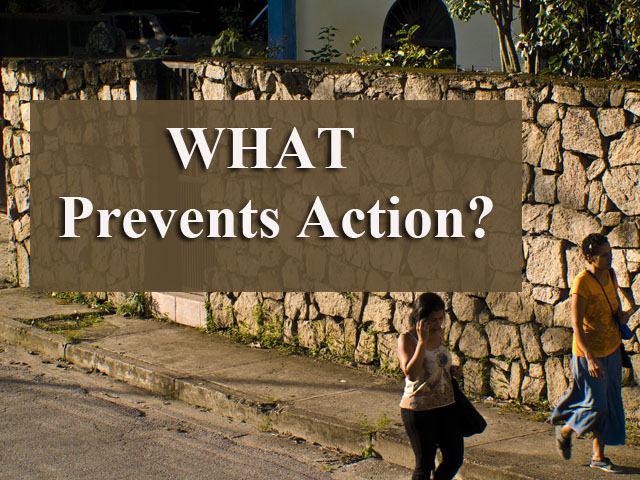
Since my high school days, back in the seventies, I felt a kind of call, there was something in me that urged me to rebel against injustice. Maybe it was just a gesture of rebellion against my father's beliefs, because he was one of those who thought that there was no need to protest.
Every time we talked, my father would give me the example of the years he had lived during the Pérez Jiménez dictatorship in the fifties in Venezuela. He would mention the people killed, the tortured, the thousands imprisoned and disappeared. He saw all this as a sign that politics was not good and that it was necessary to stay away from it. For my father all protest was political, and in a way it is, although you can distinguish the political from the partisan.
Contrary to my father's suggestions, I was very active in the youth protests of those years. Those were years when almost every day the city of Caracas was shaken by strong student protests, which were made mainly for the claim of demands such as better study sites, provision of basic services, scholarships and related issues.
In those years, there was a part of the student movement that tried to get people in the neighborhoods excited about joining larger protests. We thought that people would be interested in protesting to demand improvements in their living conditions, but most were not. Perhaps they felt that their situation was not bad enough to risk injury or imprisonment for participating in a demonstration.
Even in those years I wondered why, if they were in the majority, they did not dare to protest. At first I thought it was just fear and undoubtedly there is a lot of that, there are people who do not imagine facing the authorities and even less if they are armed, there is a certain risk there and not everyone is willing to assume it.
But it was not only fear that prevented people from participating; there was another equally important issue. It seemed that a very strong idea of impotence was planted in the collective imagination. According to that thinking, whatever you do will not be enough to change things. So, if you think that nothing can change, what is the point of participating?
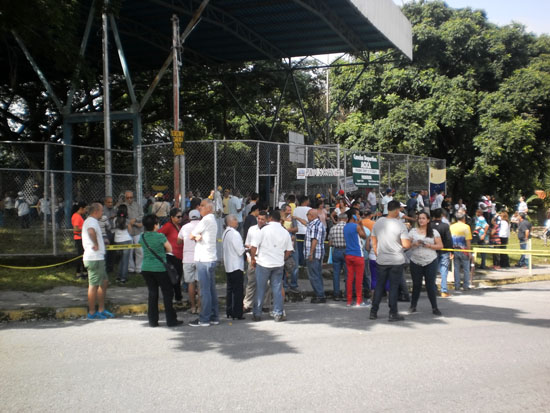
Once I graduated and became a teacher, I participated almost until the moment of my retirement in the teachers' union movements. During the years of Democracy there was a lot of participation of teachers in protests, but in specific issues: some salary increase, some demand for improvements in working conditions, but only up to that point. Most people were not interested in protests of greater scope or that meant a great commitment. There was a great fear of losing their jobs or not getting their paychecks.
Again at that time I wondered why they don't want to make a bigger sacrifice by intensifying the protests. And I came to the same conclusion, they don't think it's worth the risk. They think that we are still not going to achieve more than what we have achieved. I must say that one of the things that contributes to form these beliefs is the bad experience with leaders who also have not been clear about how far they want to go. Without leaders with clear convictions, people also feel adrift. Unfortunately we need someone to tell us where to go.
And that is another point to consider; many times people need to be pushed to get going, it seems that self-initiatives to take action are not abundant. Hence the importance of having charismatic leaders with integrity.
At present I have twenty-two years living under a dictatorship. In these times we have had many, many moments in which the majority of the people have come out to protest. This has cost many lives, especially of young people.
After such a long time a great sense of defeat has been installed in the mentality of Venezuelans, this has brought as a consequence that people do not find ways out of our situation, so they decide to leave the country, experts estimate that more than twenty percent of our population has emigrated and is scattered around the world.
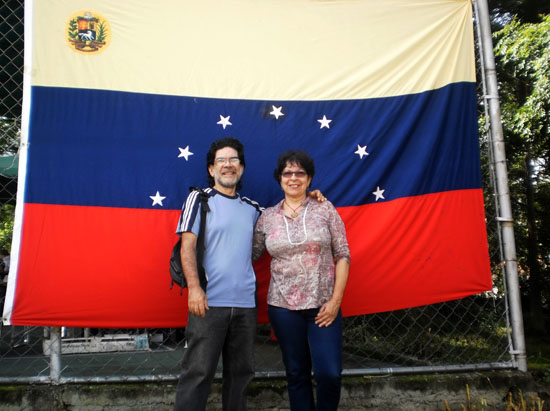
As in the past, I now see the same reasons that explain why people do not take action to get out of this system that has impoverished us and has disintegrated our families. One is fear, which is no fantasy, in our country we do not have legal institutions to protect the citizen. The other is the feeling of impotence.
Throughout these years the idea that the government is invincible has been strengthened, citizens cannot imagine that they can get out of it. People cannot imagine that if the majority would unite we could have a triumph.
In my youth I thought that all people had a limit and that once it was crossed they would take action. But I must accept that this is not so, the limit does not exist, not even in the face of imminent death. We saw it in the extermination camps during World War II.
I know that there is a rather pessimistic tone in this writing, I have let myself be carried away by the history I am living.
However, I still believe that people can learn to take initiatives that go beyond the political aspect and improve their immediate living conditions and benefit their communities.
Everyone can learn to be aware of the importance of their rights, to consider themselves worthy of dignified and humane treatment, and to think that their well-being should not be left in the hands of others but should be procured. Schools play an important role in this learning process.
Those who are fortunate enough to have democratic societies should encourage this type of debate by all possible means. It may be that at some point it will be understood that the problems of one are also the problems of all and that we all have the responsibility to find solutions.
This is my participation in the contest organized by the friends of the @ecotrain community.
Thanks for your time.
Translated with www.DeepL.com/Translator (free version)

ESPAÑOL
Desde mis tiempos de estudiante en el liceo, por allá en los años setenta, sentí una especie de llamado, había algo en mí que me impulsaba a rebelarme contra las injusticias. Quizá solo era un gesto de rebeldía hacia las creencias de mi padre, porque él era de los que pensaba que no había que protestar.
Cada vez que hablábamos mi padre me ponía el ejemplo de los años que había vivido durante la dictadura de Pérez Jiménez, en los años cincuenta, en Venezuela. Mencionaba las personas asesinadas, los torturados, los miles de encarcelados y desaparecidos. Todo aquello él lo veía como una señal de que la política no era buena y había que mantenerse alejado de ella. Para mi padre toda protesta era política, y en cierto modo es así, aunque se puede distinguir lo político de lo partidista.
En contra de las sugerencias de mi padre yo tenía una participación muy activa en las protestas juveniles de aquellos años. Al llegar a la Universidad mi participación en el movimiento estudiantil se hizo mayor, eran años donde casi todos los días la ciudad de Caracas se veía estremecida por fuertes protestas estudiantiles, las que se hacían principalmente por el reclamo de reivindicaciones como mejores sedes de estudio, suministro de servicios básicos, becas de estudio y cuestiones afines.
Por esos años había una parte del movimiento estudiantil que trataba de entusiasmar a los habitantes de los barrios para sumarse a protestas de mayor alcance. Pensábamos que la gente estaría interesada en protestar para reclamar mejoras en sus condiciones de vida, pero la mayoría no lo estaba. Quizá consideraban que su situación no era tan mala como para correr el riesgo de salir herido o encarcelado por participar en una manifestación.
Ya por aquellos años me preguntaba por qué si son mayoría no se atreven a reclamar. Al principio pensé que era solo miedo e indudablemente que hay mucho de eso, hay personas que no se imaginan enfrentando a las autoridades y menos si están están armadas, hay allí un riesgo cierto y no todos están dispuestos a asumirlo.

Pero no era solamente el miedo lo que impedía participar a la gente; había otro asunto igualmente importante. Parecía que en el imaginario colectivo estaba sembrada una idea muy fuerte de impotencia. Según ese pensamiento haga lo que hagas no será suficiente para cambiar las cosas. Entonces, si se piensa que nada puede cambiar. ¿Qué sentido puede tener participar?
Una vez que me gradué y me hice Profesor participé casi hasta el momento de mi retiro en los movimientos gremiales del Magisterio. Durante los años de la Democracia hubo mucha participación de los docentes en las protestas, pero en cuestiones puntuales: algún aumento de salarios, alguna reivindicación por mejoras en las condiciones de trabajo, pero hasta allí. La mayoría de las personas no estaban interesadas en protestas de mayor alcance o que significaran un gran compromiso. Había un temor muy grande a perder el puesto de trabajo o a dejar de cobrar la quincena.
De nuevo en ese tiempo me preguntaba por qué no quieren hacer un mayor sacrificio intensificando las protestas. Y llegaba a la misma conclusión, no consideran que valga la pena el riesgo. Creen que igual no vamos a lograr más de lo que hemos logrado. Debo decir que una de las cosas que contribuye a formar esas creencias es la mala experiencia con dirigentes que tampoco han tenido claro hasta donde desean llegar. Sin dirigentes con claras convicciones la gente también se siente a la deriva. Lamentablemente necesitamos que alguien nos diga por dónde ir.
Y ese es otro punto a considerar; muchas veces la gente necesita que la empujen para ponerse en marcha, parece que las iniciativas propias para ponerse en acción no son abundantes. De allí la importancia de contar con dirigentes carismáticos e íntegros.
En la actualidad tengo veintidós años viviendo bajo una dictadura. En estos tiempos hemos tenidos muchísimos momentos en que la gente en forma mayoritaria ha salido a protestar. Eso ha costado muchas vidas, sobre todo de gente joven.
Después de tanto tiempo una gran sensación de derrota se ha instalado en la mentalidad de los venezolanos, esto ha traído como consecuencia que la gente no encuentre salidas a nuestra situación, por lo que deciden irse del país, los expertos calculan que más del veinte por ciento de nuestra población ha emigrado y se encuentra dispersa por el mundo .
Igual que en el pasado ahora veo las mismas razones que explican por qué no se pasa a la acción para lograr salir de este sistema que nos ha empobrecido y nos ha desintegrado a la familia. Una es el miedo, lo que no es ninguna fantasía, en nuestro país no contamos con instituciones legales que protejan al ciudadano. Lo otro es la sensación de impotencia. A lo largo de estos años se ha fortalecido la idea de que el gobierno es invencible, los ciudadanos no se imaginan que puedan salir de él. La gente no se puede imaginar que si la mayoría se uniera podríamos tener un triunfo.

En mi juventud pensé que todas las personas tenían un límite y que una vez traspasado se pondrían en acción. Pero debo aceptar que eso no es así, el límite no existe, ni siquiera ante la inminencia de la muerte. Ya lo vimos en los campos de exterminio durante la Segunda Guerra Mundial.
Sé que en este escrito hay un tono bastante pesimista, me he dejado llevar por la historia que estoy viviendo.
Sin embargo, sigo creyendo que la gente puede aprender a tomar iniciativas que vayan más allá del aspecto político y que mejoren sus condiciones de vida inmediata y favorezcan sus comunidades.
Todos pueden aprender a tener conciencia de la importancia de sus derechos, a considerarse merecedores de un trato digno y humano, y a pensar que el bienestar no se debe dejar en manos de los demás sino que hay que procurárselo. En ese aprendizaje la escuela juega un gran papel.
Los que tienen la dicha de tener sociedades democráticas deben propiciar por todos los medios posibles este tipo de debates. Pueda ser que en algún momento se entienda que los problemas de uno también son problemas de todos y que entre todos tenemos la responsabilidad de encontrar las soluciones.
Esta es mi participación para el concurso convocado por los amigos de la comunidad @ecotrain.
Gracias por tu tiempo.

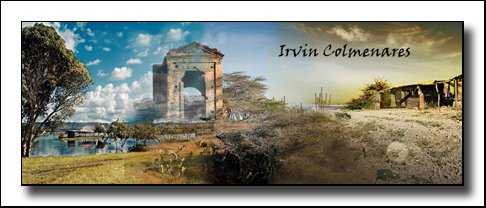




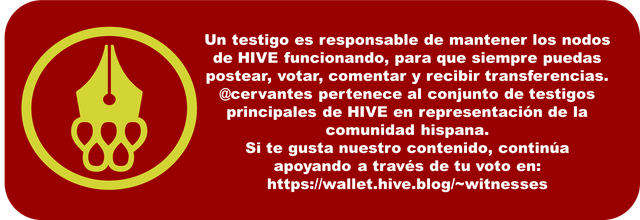
Te invito a apoyar este proyecto como witness y a formar parte de esta gran comunidad uniéndote a su Discord en el siguiente enlace:
Discord de la comunidad Cervantes

I am guilty of this. My partner is an activist. He decided that he won't vote anymore as an act of activism against everything that's happening with the current administration here in the Philippines. I was thinking that it wouldn't make a difference unless 60% of all the voters would do the same. We're a democratic country, by the way. Realizing it now, he's very courageous to take a stand. And by inspiring and educating others, people will eventually understand his point and join his cause...hopefully.
Thank you, too, for the inspiration. Continue fighting. Always stay safe. 😊
Social struggles take time, the important thing is to stand firm and teach by example. I hope your message reaches many people and you can achieve your goals. Thank you very much for stopping by and commenting. Be well,dear @lovehannah . A big hug from Maracay.
¡Magnífico artículo, @irvinc! El recorrido que haces hasta nuestros días es de grata lectura, pero sobre todo tus reflexiones son muy pertinentes y certeras, en mi opinión. Sin dudas, el miedo y la apatía son dos jinetes que quizás el Apocalipsis no previó; ambos son de los que más han influido en nuestro estado actual; agregaría la falta de reflexión y de información en una gran parte de la población. Gracias por tu texto. Saludos y suerte en el concurso.
Sí el miedo ha sido determinante para que todavía se mantenga este desastre. La desinformación crece cada día, por mi casa hay gente que solo se informa por lo que recibe en VTV. Muchas gracias por pasar y comentar, estimado @josemalavem. Que estés bien. Un fuerte abrazo desde Maracay.
https://twitter.com/irvinc1/status/1471526522896924676
The rewards earned on this comment will go directly to the person sharing the post on Twitter as long as they are registered with @poshtoken. Sign up at https://hiveposh.com.
Saludos amigos, hoy en día si protestamos corremos el riesgo de ir preso por reclamar nuestros derechos, que están siendo vulnerados como el derecho a la alimentación, a un salario dígno como profesionales, es bastante fuerte. Tendrá que suceder protestas másivas y paro general de los profesionales tanto de la educación y de la salud para que puedan verse resultados para que el gobierno reflexione.
Así es, mi estimado @cetb2008, no tenemos ninguna garantía judicial, por eso aumenta el miedo. Puede ser que las cosas cambien en algún momento. Muchas gracias por pasar y comentar. Bendiciones para la familia.
Acertada reflexión querido amigo, la verdad es que son sentimientos compartidos en el momento actual, la visión nos ha generado un poco de pesimismo en cuanto a las acciones estadales y sociales. Pero la fe debemos conservarla siempre.
Un abrazo inmenso. Saludos
Así es, mi querida @slwzl. Hay que mantener la esperanza en que saldremos de esta pesadilla. Muchas gracias por pasar y comentar. Que estés bien. Un fuerte abrazo desde Maracay.
mi estimado @irvinc sin duda este es un tema que tiene mucha tela que cortar y que sin duda alguna nos mueve y nos asiente, como venezolanos. Como diría el refrán hay que estar en nuestro zapatos para comprender nuestra compleja situación política y social. Mas allá del miedo, fue la inocencia e incredulidad de nuestro pueblo al creer en un falso y disfrazado socialismo. siempre es un honor y placer leer su contenido. Feliz hoy
Es verdad lo que dices, fueron muy hábiles para engatuzar a la gente y luego para manipularlos. Estamos en un trance difícil, hay que tener confianza en que encontraremos la forma de salir de esto. Muchas gracias por pasar y comentar, estimada @lvelasquezc. Que estés bien. Un fuerte abrazo desde Maracay.
I can somehow relate to what you mention here, sometimes I find it hopeless to wait for it to change.
We have no regulations or laws about protest, many people are also brainwashed and are scared to even mention the word "protest" in some conversation. We hope to push it through someday, sooner or later.
Thanks for sharing. 🤗
Yes, when you get into a situation like this it is not easy to get out, but you have to be confident that you will find a way out. Thank you very much for stopping by and commenting, dear @sunnyvo . Be well.
Al leer el recorrido histórico que nos haces no dejo de verme en ellos, la lucha social y gremial siempre fue una alternativa para las reivindicaciones pero sobre todo para expresan la inconformidad, carecer de esa posibilidad llena de miedo e impotencia,Saludos.
Sí, la lucha gremial fue muy importante en los tiempos de la Democracia, se consiguieron algunas cuestiones importantes para la seguridad social de los Maestros, lamentablemente eso se perdió. En algún momento saldremos de esto. Muchas gracias por pasar y comentar, estimada @damarysvibra. Que estés bien. Un fuerte abrazo.